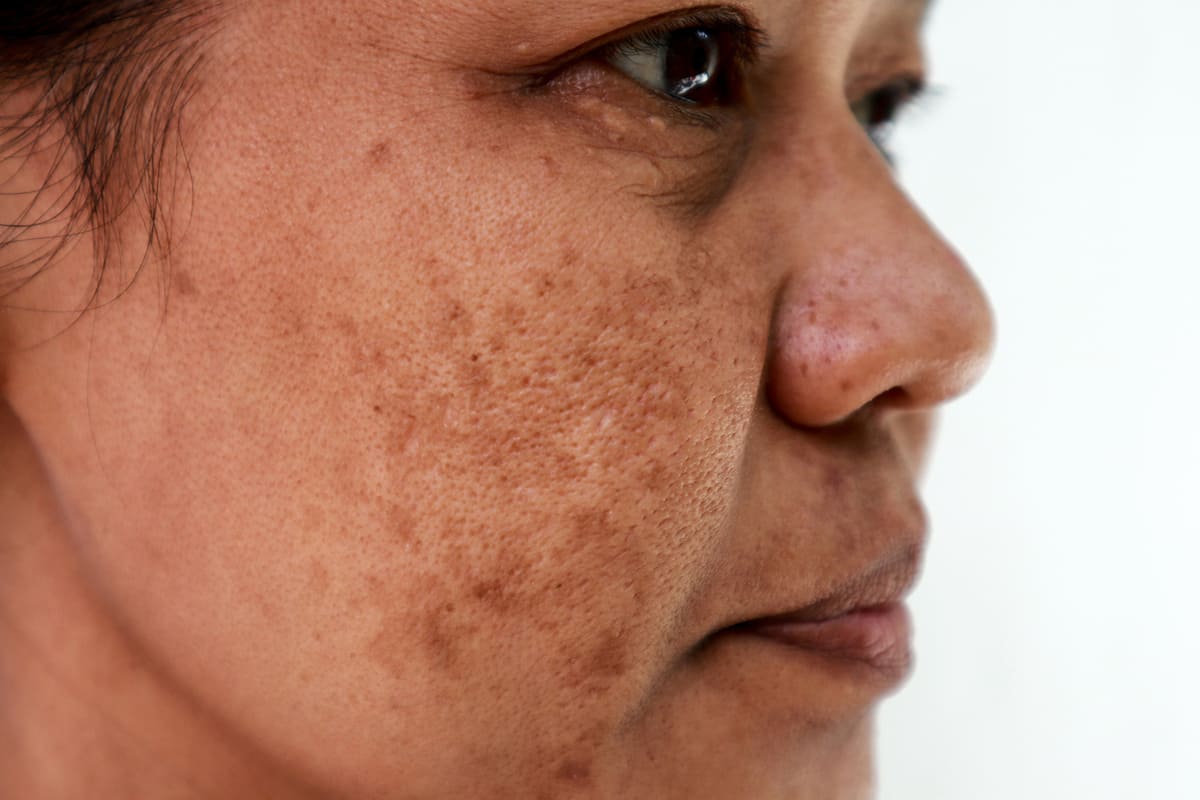As we age, we encounter many skincare challenges, and one that impacts nearly everyone is hyperpigmentation. Cosmetic Dermatologist Dr. Michele Green explains that “Hyperpigmentation is a skin condition characterized by areas of the skin that are darker in appearance than the surrounding skin.”
While hyperpigmentation is harmless, it can be undesirable because it gives skin an uneven, dull appearance. We spoke to three skincare experts to learn what causes hyperpigmentation, how to prevent it, and what products and treatments can be added to your skincare routine to help combat it.
What Causes Hyperpigmentation?
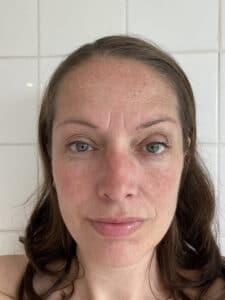
A variety of factors cause hyperpigmentation. Clinical Dermatologist Dr. Enrizza P. Factor explains that “Acne, hormonal changes, aging, and sun exposure can all trigger hyperpigmentation.” Perhaps the most significant contributor, however, is sun damage. Dr. Green explains that “Skin color is related to a substance called melanin, which is produced by skin cells called melanocytes to protect the skin from the sun’s harmful UV rays.”
She goes on to say, “Too much melanin can be produced if the skin cells are damaged or unhealthy, causing that area to appear darker. Increased sun exposure leads to increased melanin production, so the skin becomes darker or ‘tanned.’ Sun exposure makes the skin more prone to skin discoloration: over time, melanin can clump together to cause age spots.”
Dr. Green also explains how aging impacts hyperpigmentation, saying, “As you age, the skin loses collagen and elastin and becomes thinner and drier, making it more susceptible to developing hyperpigmentation.”
How to Prevent Hyperpigmentation

The general consensus is that the best way to prevent hyperpigmentation is to practice sun safety by wearing SPF daily. Dr. Green says, “The sun’s UVB rays are responsible for sunburn and melanoma, while UVA rays are responsible for signs of aging like sun spots and wrinkles.” She recommends that people “seek out broad-spectrum sunscreens to protect your skin from both UVA and UVB rays,” explaining that “Sunscreen must be reapplied every 90 minutes, even on cloudy days, for the most effective protection.” Dr. Pescatore also suggests, “Avoid picking existing blemishes or mosquito bites, which can cause inflammation and lead to hyperpigmentation.”
The Best Topical Ingredients
Experts agree that people suffering from hyperpigmentation should look for skincare products containing the following ingredients.
Vitamin C
Vitamin C, or ascorbic acid, “is an antioxidant that protects the skin from free radical damage and oxidative stress caused by the sun’s UV rays, smoking, pollution, and natural metabolic processes,” according to Dr. Green. It’s an excellent ingredient for fading dark spots and creating an even skin tone.
Dr. Factor recommends vitamin C as one of the top ingredients to look for in skincare products, explaining, “One of its functions is to block the action of an enzyme called tyrosinase, which is essential for the formation of the pigment melanin.” Dr. Green recommends products that pair vitamin C with vitamin E. She says, “Vitamin C is an unstable compound, but becomes more stable when combined with vitamin E. The combination of vitamin C and vitamin E is the most effective in treating hyperpigmentation.”
Retinoids
Retinoids, or vitamin A derivatives, may be best known for their anti-aging properties and their ability to reduce the appearance of fine lines and wrinkles. According to Dr. Green, retinoids also treat dark spots and sun damage. She says, “Retinoids expedite cellular turnover. This allows healthier cells beneath the surface to replace old skin cells while promoting collagen and elastin production. This leads to brighter, smoother, and more youthful skin.”
Hydroquinone
Hydroquinone, like vitamin C, also inhibits tyrosinase production. Hydroquinone is a skin-bleaching agent, and it’s best to consult a dermatologist before using it. Dr. Green cautions that “Hydroquinone makes your skin photosensitive, so adequate sun protection and daily sunscreen application are essential.” She adds, “Because hydroquinone can irritatethe skin, it is important not to mix it with other potentially irritating ingredients such as benzoyl peroxide and alpha hydroxy acids.”
Oral Supplements

Many may think the solution to hyperpigmentation comes in a topical cream. However, adding oral supplements to your routine can provide major benefits. Dr. Fred Pescatore is a renowned natural health physician and skin health expert who has worked with celebrity clients such as Sarah Jessica Parker and Kate Hudson. Dr. Pescatore recommends adding supplements such as vitamin C and Pycnogenol to your routine to help prevent hyperpigmentation.
While vitamin C is well known, readers may be less familiar with Pycnogenol. This maritime pine bark extract acts as an antioxidant, reducing the appearance of spots and hyperpigmentation. It simultaneously protects the skin from further damage.
According to Dr. Pescatore, “It lightens over-pigmented skin, lowering pigmentation intensity resulting in a brighter skin complexion,” adding, “The great thing about ingredients like vitamin C and Pycnogenol is that they are found in so many great wellness and beauty products. Pycnogenol is available in over 1,000 oral and topical products, and it is a standardized ingredient, so no matter what brand you select, you can be confident you’ll be getting its benefits.” He recommends Healthy Origins as an oral supplement that contains this ingredient.
The Best In-Office Treatments
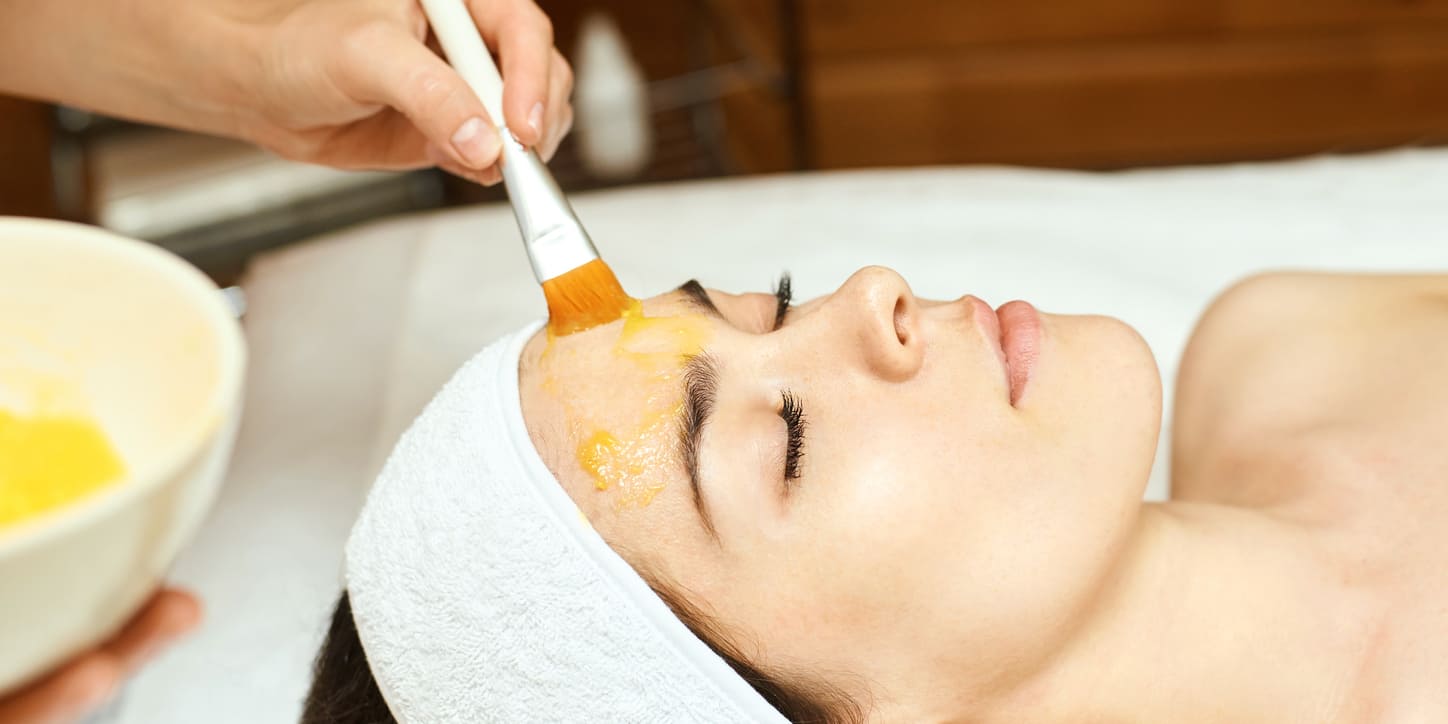
Along with topical treatments and oral supplements, there are in-office treatments that can help treat melasma and hyperpigmentation. According to Dr. Green, “Fraxel Laser is the gold standard treatment for improving skin tone and texture.” She explains how this treatment works: “Fraxel is a fractionated skin resurfacing laser recommended for those with sun damage and hyperpigmentation. It creates controlled, microscopic wounds in the skin through highly concentrated laser pulses. As the skin repairs these wounds, it forms new collagen, and new skin cells grow. This leads to a brighter, more radiant complexion that is even in tone.”
She also recommends chemical peels, such as trichloroacetic acid (TCA) peels. These treatments exfoliate the skin and increase cell turnover rates, “encouraging dead and discolored skin cells to slough off.” This results in the development of new, healthier, and more evenly colored skin cells.
Top Picks for Hyperpigmentation Correction
VI Derm Dark Spot Lifting Serum, $130
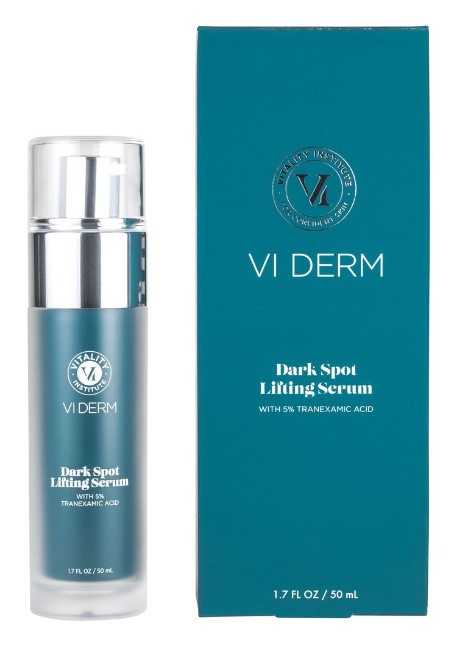
Winner of Dermascope 2024 Aestheticians’ Choice Awards, VI Derm Dark Spot Lifting Serum harnesses the power of 5% tranexamic acid (clinical strength) and our TRI-ER8ASE® Acid Complex to lift the most stubborn hyperpigmentation and fight future discoloration for a brighter, more luminous complexion. Added kojic acid helps prevent unwanted pigmentation; lactic acid gently hydrates, resurfaces, and exfoliates the skin to support optimal absorption of other pigment-fighting ingredients.
biopelle Antioxidant CE Plus Serum, $126
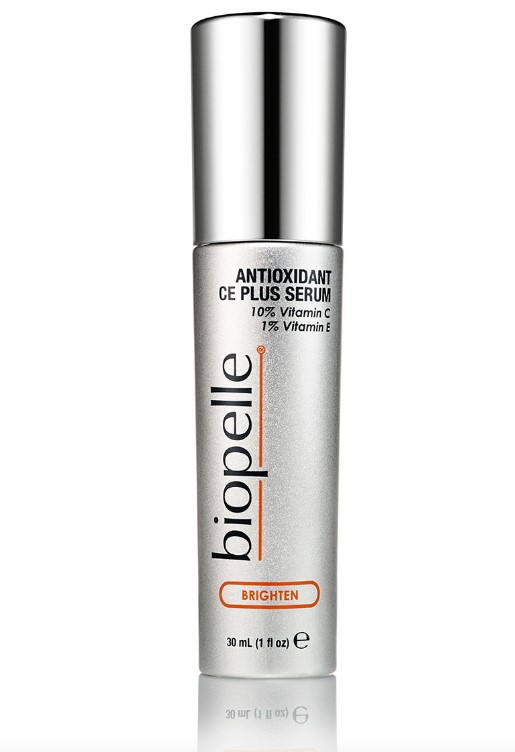
Biopelle Brighten Antioxidant CE Plus Serum is a multitasking and comprehensive antioxidant serum featuring a gentle yet effective form of vitamin C along with vitamin E, pine bark extract, additional antioxidant botanicals, and hyaluronic acid that work together to powerfully help protect, brighten, and illuminate the skin. Non-irritating, dermatologist-tested, and suitable for all skin types. It may be suitable for sensitive and acne-prone skin.
Looking for more anti-aging skincare advice? Check out this piece on the importance of retinoids.
Read Next:
A Flexible Anti-Aging Skincare Routine That Works

